Rajiv Singh Yadav, a ration shop kotedaar, defies the ‘bad guy’ stereotype
With livelihoods gone and no end in sight for the COVID-19 pandemic, hunger is rising in rural India. Foodgrains supplied through the ration shops are feeding people. And unlike most kotedaars, who are viewed with suspicion, Rajiv Singh, is hugely popular in his village in UP.
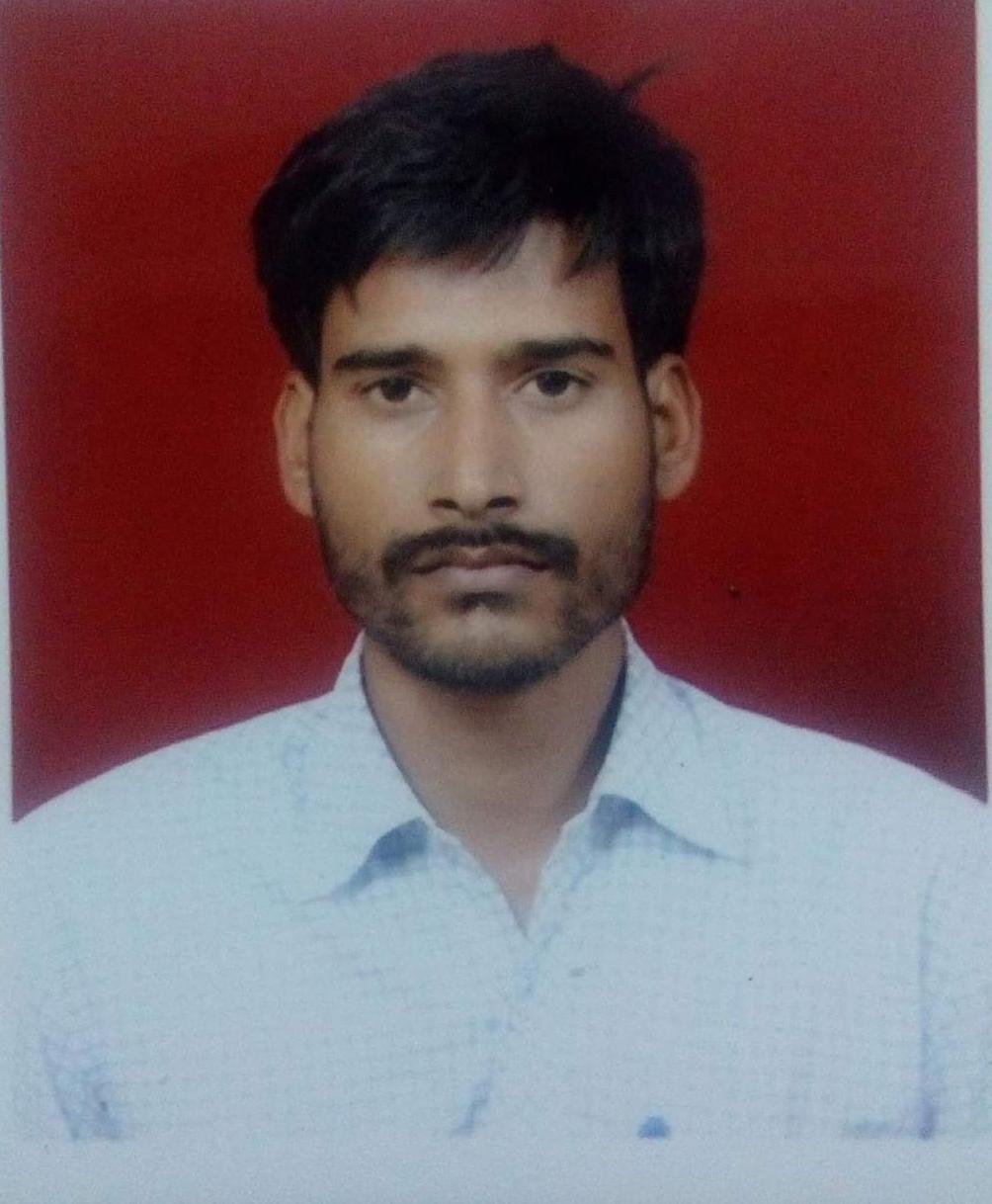
Chhakarapur (Shahjahanpur), Uttar Pradesh
The big metal gate opened into a courtyard where the government ration shop in Chhakarapur, about 200 kilometres from the state capital Lucknow, is located. The sun blazed on the torn and flapping posters on the walls, from the recently held panchayat elections in the state. Cycles leaned against the wall, and a few villagers stood in line, faces and head covered, bags in hand.
Inside, in the relatively cooler space, Rajiv Singh Yadav sat, a sanitiser and calculator in front of him. Behind him, the weighing scales clattered as the wheat and rice were weighed before being poured into the waiting bags of the beneficiaries of the Indian government’s PDS (public distribution system).
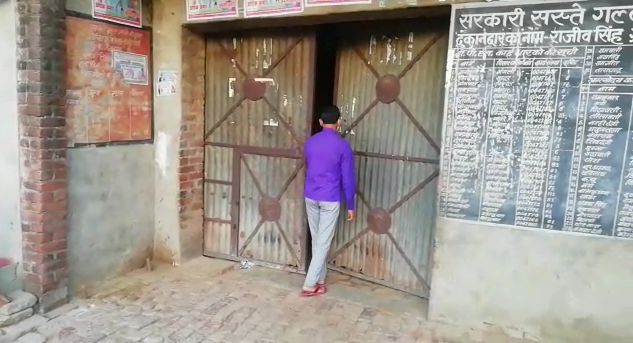
Rajiv Singh is the kotedaar (person in charge of the ration shop who distributes ration as per the government specified quota) doling out grains — wheat and rice. More than ever before, he is now that vital link for the people of Chhakarapur village in Shahjahanpur district in Uttar Pradesh, between the government’s welfare ration schemes and their sustenance.
Also Read: UP govt to provide extra 5 kgs free foodgrains to the poor
Last year, when the first nation wide lockdown was announced on March 25, the central government had sanctioned extra rations, free of cost for eight months till November 2020. This year, additional free food grains (wheat or rice) have been approved both by the central and the state government to help people as many have lost their livelihoods in the pandemic.
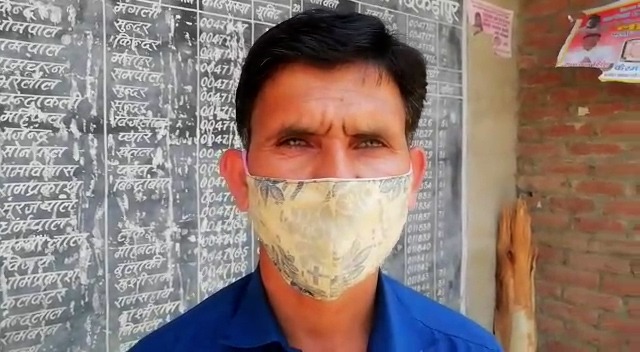
In times of disaster, and certainly in the COVID-19 pandemic, the kotedaar’s role and responsibility in the village becomes manifold. Distributing rations is not an easy task to render. And, the kotedaars are often reviled and painted as villains. There are always complaints about them siphoning off the rations, mishandling distribution and worse. There is invariably an undercurrent of anger and suspicion about him in the villages.
But Rajiv Singh defies the ‘bad guy’ stereotype and is hugely popular amongst the Chhakarapur nivaasis (residents).
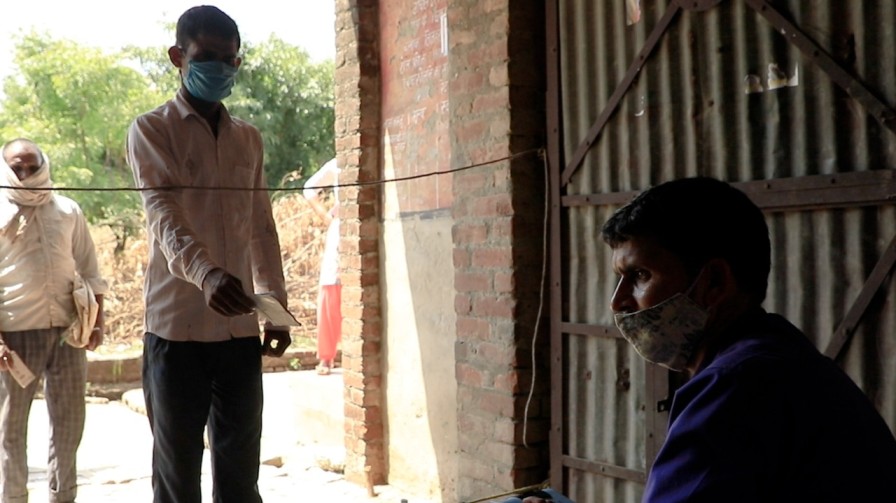
16 hours a day duty
Every morning, kotedaar Rajiv wakes up at dawn, feeds the two buffaloes he owns, and after a quick cup of tea, rolls up the shutters of his ration shop. The shop hours have been extended because of the pandemic. It now opens at 6 am and shuts only at 9 pm.
“But sometimes, even keeping it open for sixteen hours a day is not enough. Many people who have to leave the village earlier than six in the morning and return later than nine at night, sometimes miss taking the rations,” Rajiv Singh told Gaon Connection. “We understand that and help whenever we can,” the 38-year-old kotedaar told Gaon Connection.
In a day, nearly 50-60 people arrive at his shop to collect their rations. Often they turn up much after working hours because they were out and could not come on time. The kotedaar who has managed the shop for 10 years, said he never turned them away. “If it was very urgent, I would give them wheat or rice from my home and asked them to pick up their rations the following morning,” he said.
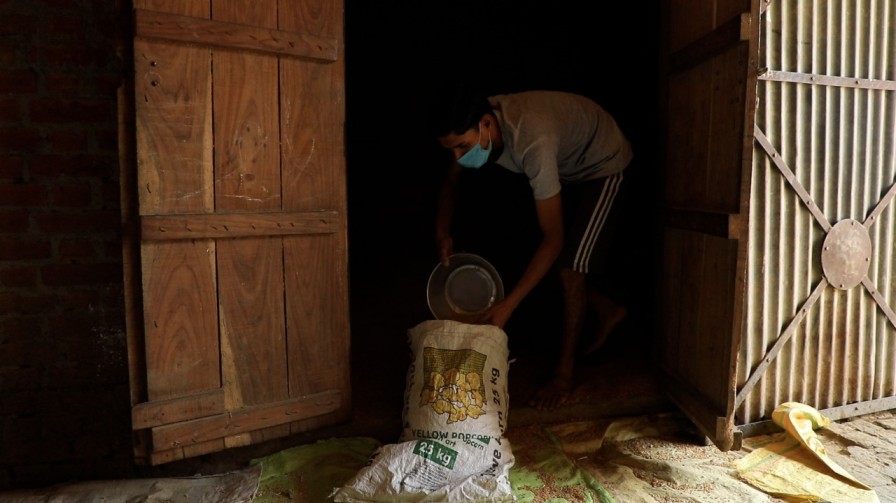
Also Read: Rising hunger stares rural India in the face as the second wave of COVID invades villages
The former kotedaar, Dharam Singh, had nothing but good words for Rajiv Singh. “He is an honest man. He goes out of his way to ensure the smooth distribution of rations. And I know that often he gives the rations to people who have no money and they pay back when they can,” Dharam Singh told Gaon Connection.
“People’s livelihoods are gone and when we distribute the rations to the men and women of our village, it is a good feeling to know that they will at least not go hungry for a while,” Rajiv Singh said.
Also Read: A humanitarian crisis begins to unfold as India goes under a ‘complete lockdown’
“The responsibility of a kotedaar has become much more in the lockdown,” Sunil Kumar, Rajiv’s brother told Gaon Connection. “It is our duty to ensure no one goes hungry from our doors,” the 32-year-old added.
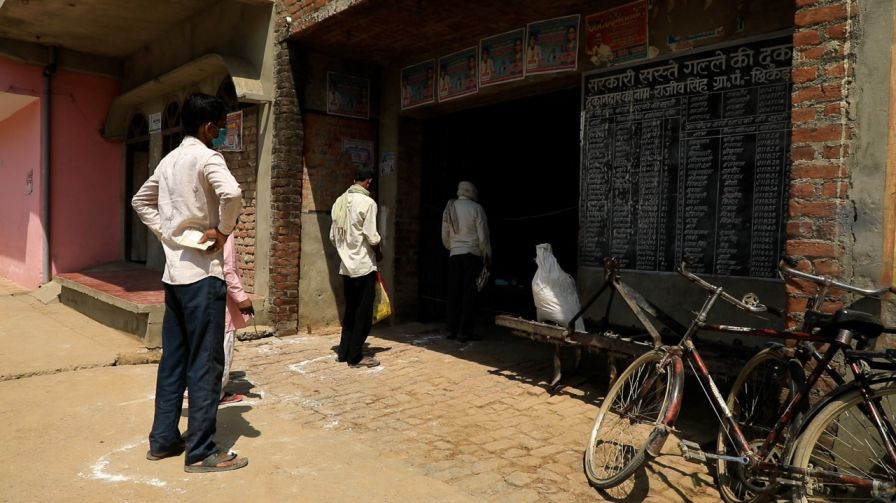
Ration distribution in pandemic
Chhakarapur has approximately 1,700 inhabitants. Of them, there are 401 ration card holders. There are 23 Antyodaya ration card beneficiaries, and 378 other ration card holders.
This month, between May 20 and May 25, Rajiv Singh has distributed 2,566 kilograms of rice, and 3,849 kilograms of wheat as part of the free rations. Of the 401 ration card holders, 316 of them have already collected their rations.
“A kotedaar gets a commission of seventy rupees a quintal [100 kg] of grain he dispenses,” Om Hari Upadhyay, district supply officer of Shahjahanpur, told Gaon Connection.
“Under the Pradhan Mantri Garib Kalyan Yojana, free rations will continue to be distributed. Further action will depend on the situation,” Upadhyay clarified.
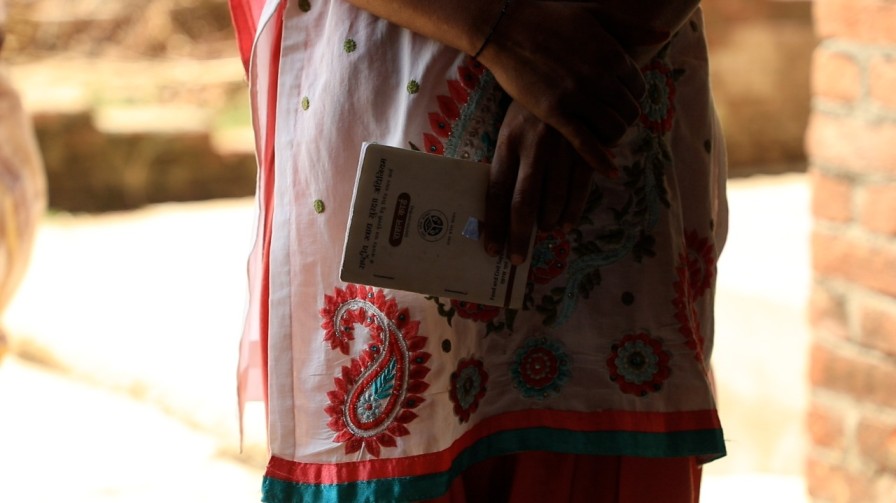
Often, Rajiv calls up the people in his village and reminds them to collect their rations. “Sometimes we even deliver it to them if they are unable to pick up the rations for some reason,” he said.
No wonder the villagers of Chhakarapur are all praises for their kotedaar. “We know for a fact that but for him, many in the village would have gone hungry because they did not have money for the rations,” Danita, a village inhabitant, told Gaon Connection.
Meanwhile, in the hot afternoon of May, Tulsidas’ Ramcharitmanas is being sung in a temple nearby, and there is a lull in activity at the shop. Rajiv takes the opportunity to have his lunch. “Everyone feels hunger, it is my responsibility to ensure no one goes to bed at night without having eaten a meal,” he said.

